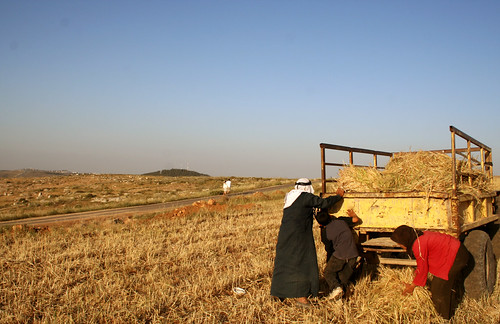 As my Carnegie Council colleague Evan O'Neil noted in this space nearly a year ago, "Agriculture ... persists as the millstone around the neck of international trade negotiations, grinding the process to a halt." Now it looks likely that there will soon be movement on the so-called Doha round of trade talks at the WTO and it is agriculture that is providing the spark.
As my Carnegie Council colleague Evan O'Neil noted in this space nearly a year ago, "Agriculture ... persists as the millstone around the neck of international trade negotiations, grinding the process to a halt." Now it looks likely that there will soon be movement on the so-called Doha round of trade talks at the WTO and it is agriculture that is providing the spark.
The Wall Street Journal's John W. Miller reports this morning that the European Union's recent temporary elimination of import tariffs on cereal may be the first step toward a restructuring of developed-world subsidies for agriculture (permanent link to story here).
The world's scramble for affordable food is tearing at the patchwork of agricultural tariffs that governments have long used to control trade - and offering a glimmer of hope to those trying to kick-start a stalled global trade deal....So far, the situation hasn't forced a rethinking of subsidies that farmers in the developed world receive. But some say that is an inevitable consequence of higher global food prices.
With food prices in the United States rising at the fastest pace in 17 years, the biggest losers are developing nations. The United States is the world's leading food aid donor, but this year aid was cut to less than half of what it was in 2000. Director-General Jacques Diouf of the United Nations Food and Agriculture Organization cautioned that soaring food prices could make it harder for the international community to meet the Millennium Development Goals of halving extreme poverty and hunger by 2015.
----
photo of Palestinian wheat farmers by delayed gratification (CC)

0 Comments:
Post a Comment